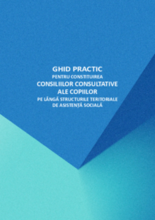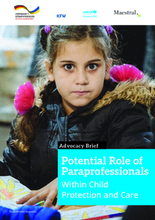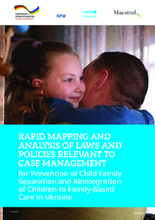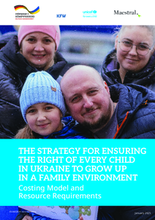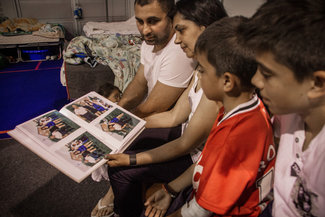

Displaying 1 - 10 of 1079
Across Ukraine, families are living with daily uncertainty. Freezing temperatures, power cuts, and ongoing bombardment place a huge strain on parents and caregivers, as well as on frontline responders.
A Balkan Insight investigation highlights that the Czech Republic’s child protection system is struggling to safeguard children at risk due to systemic problems including a culture that has historically tolerated corporal punishment, uneven implementation of protections across regions, gaps in cooperation among social services, police, and schools, and insufficient training and resources for professionals to detect and prevent violence against children.
This article investigates the deinstitutionalisation of children with disabilities in times of armed conflict, taking the situation in Ukraine as a case study. It argues that a proper implementation of the right to independent living involves adopting a human rights-based approach that considers all the socio-economic rights of children with disabilities with due regard for the knowledge and expertise existing within families.
As Russia’s war in Ukraine nears its fourth year, thousands of children have been orphaned, wounded, displaced, or forced into adult roles, with their lives unfolding in hospitals, temporary homes, and courtrooms far from the front lines.
This chapter, in the book Children and Family Social Work, reviews the reform of children’s care systems in Eastern Europe and Central Asia, tracing the historical reliance on large-scale residential institutions under communism and the subsequent shift toward community-based alternatives after the Soviet Union’s collapse. While institutionalization has significantly declined and community services have expanded, challenges remain in funding, workforce development, and preventing family separation while protecting children from harm.
Child participation in decisions that affect them is a core element of a rights-based child protection system, and Advisory Boards of Children (ABCs) provide a structured local mechanism to ensure their meaningful involvement in shaping policies and services. This practical guide offers tools and recommendations to support the safe, effective, and equitable establishment and strengthening of ABCs, building on 15 years of experience and aligning with UN recommendations in Moldova.
This brief presents the case for engaging paraprofessional social service workers as part of a strengthened child protection and care system in Ukraine. The advocacy brief outlines how paraprofessionals—working under the supervision of qualified professionals—can help address workforce shortages, particularly in crisis-affected and resource-constrained contexts.
The paper provides an overview of Ukraine’s legal and policy framework related to child protection and care reform. The document reviews key national laws, strategies and regulations to assess their alignment with international child rights standards and the objectives of the reform to ensure that every child grows up in a family environment.
The Costing Model and Resource Requirements report presents a comprehensive financial analysis of Ukraine’s National Strategy to ensure every child grows up in a family environment. It estimates the resources required to implement the Strategy and its multi-year implementation plan across national, oblast and hromada levels, with a focus on strengthening families, expanding family-based care, reintegrating displaced children and transforming institutional care.
The report analyses existing parenting support policies, programmes and service models relevant to child protection and care reform. Drawing on international evidence and national sources, the review highlights the role of parenting support in preventing family separation, strengthening caregiving capacities and improving child well-being across the life course.

